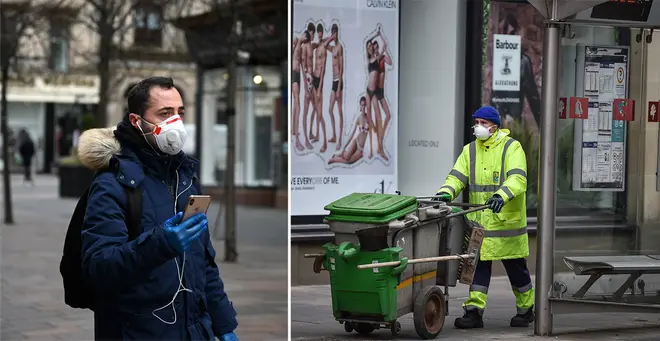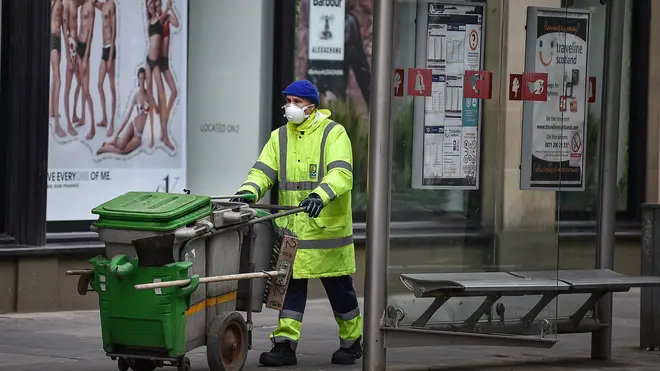Who can go to work during the coronavirus UK lockdown?
24 March 2020, 13:20

Boris Johnson yesterday announced a UK-wide lockdown, and urged people to work from home if possible.
Many people have been left wondering who is allowed to go to work under the new guidelines introduced by the government last night.
You can find the latest Coronavirus (Covid-19) advice from the NHS here.
Prime Minister Boris Johnson addressed the nation in an unprecedented broadcast about the latest coronavirus social distancing measures, saying that nobody should leave the house under any circumstances other than the following:
- Shopping for basic necessities
- One form of exercise a day - either alone or with members of your household
- Medical need or to provide care help vulnerable person
- Travel to work - but only if necessary and you cannot work from home
How can still go to work under UK lockdown?
It has not been directly specified who exactly can go to work, but the government have urged the public to work from home 'if possible'. This measure comes after the government announced the children of 'key workers' would still be able to attend school so that their parents could go to work.
The 'key workers' - and their Department of Education descriptions are as follows:
Education and childcare
"This includes nursery and teaching staff, social workers and those specialist education professionals who must remain active during the COVID-19 response to deliver this approach."
Key public services
"This includes those essential to the running of the justice system, religious staff, charities and workers delivering key frontline services, those responsible for the management of the deceased, and journalists and broadcasters who are providing public service broadcasting."
Read More: What does it mean if the UK is in lockdown amid coronavirus pandemic?
Local and national government
"This only includes those administrative occupations essential to the effective delivery of the COVID-19 response or delivering essential public services such as the payment of benefits, including in government agencies and arms length bodies."
Food and other necessary goods
"This includes those involved in food production, processing, distribution, sale and delivery as well as those essential to the provision of other key goods (for example hygienic and veterinary medicines)."

Public safety and national security
"This includes police and support staff, Ministry of Defence civilians, contractor and armed forces personnel (those critical to the delivery of key defence and national security outputs and essential to the response to the COVID-19 pandemic), fire and rescue service employees (including support staff), National Crime Agency staff, those maintaining border security, prison and probation staff and other national security roles, including those overseas."
Transport
"This includes those who will keep the air, water, road and rail passenger and freight transport modes operating during the COVID-19 response, including those working on transport systems through which supply chains pass."
Utilities, communication and financial services
"This includes staff needed for essential financial services provision (including but not limited to workers in banks, building societies and financial market infrastructure), the oil, gas, electricity and water sectors (including sewerage), information technology and data infrastructure sector and primary industry supplies to continue during the COVID-19 response, as well as key staff working in the civil nuclear, chemicals, telecommunications (including but not limited to network operations, field engineering, call centre staff, IT and data infrastructure, 999 and 111 critical services), postal services and delivery, payments providers and waste disposal sectors."
Read more: Coronavirus: 4,500 retired doctors and nurses have signed up to return to the NHS






















